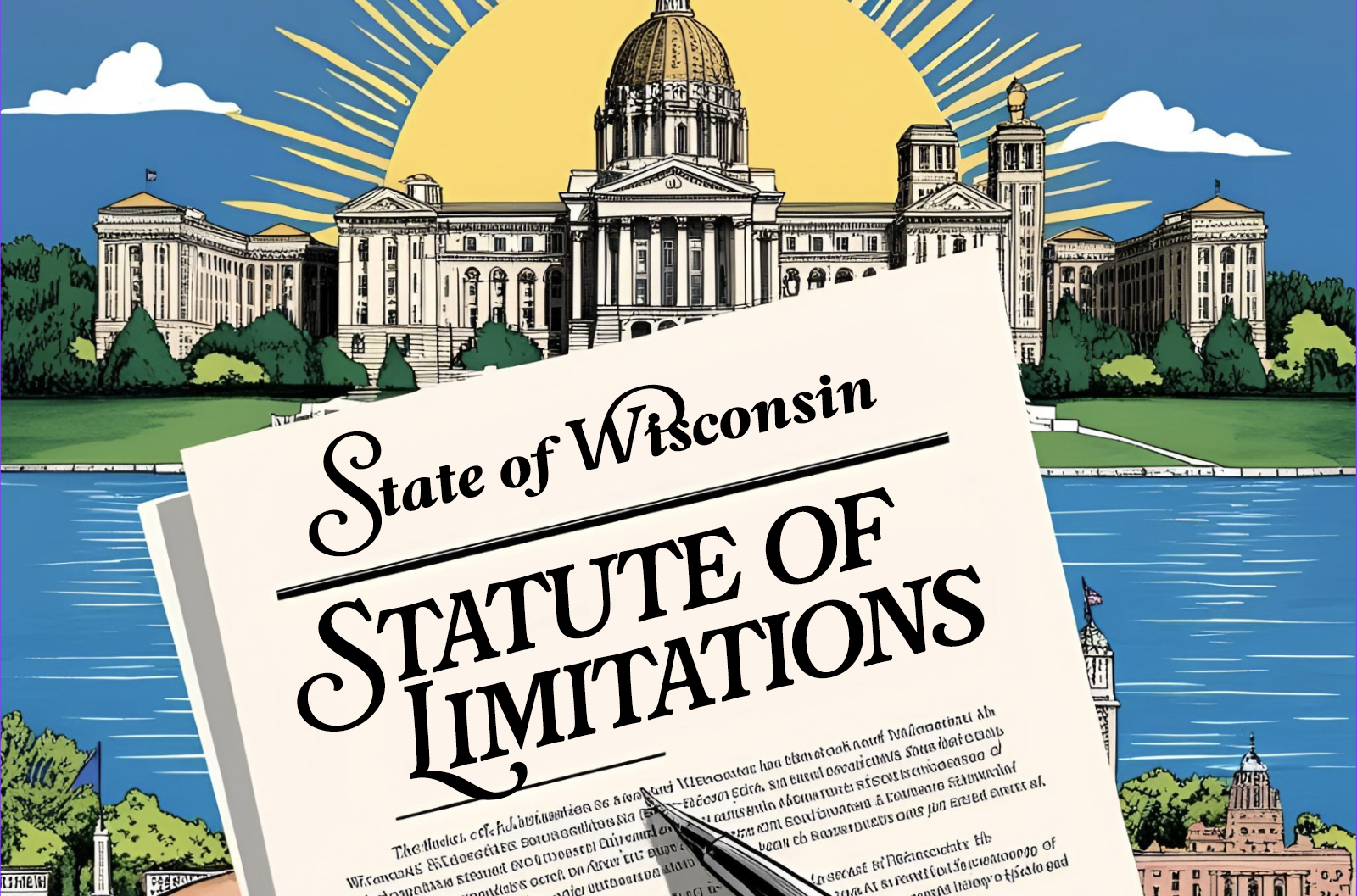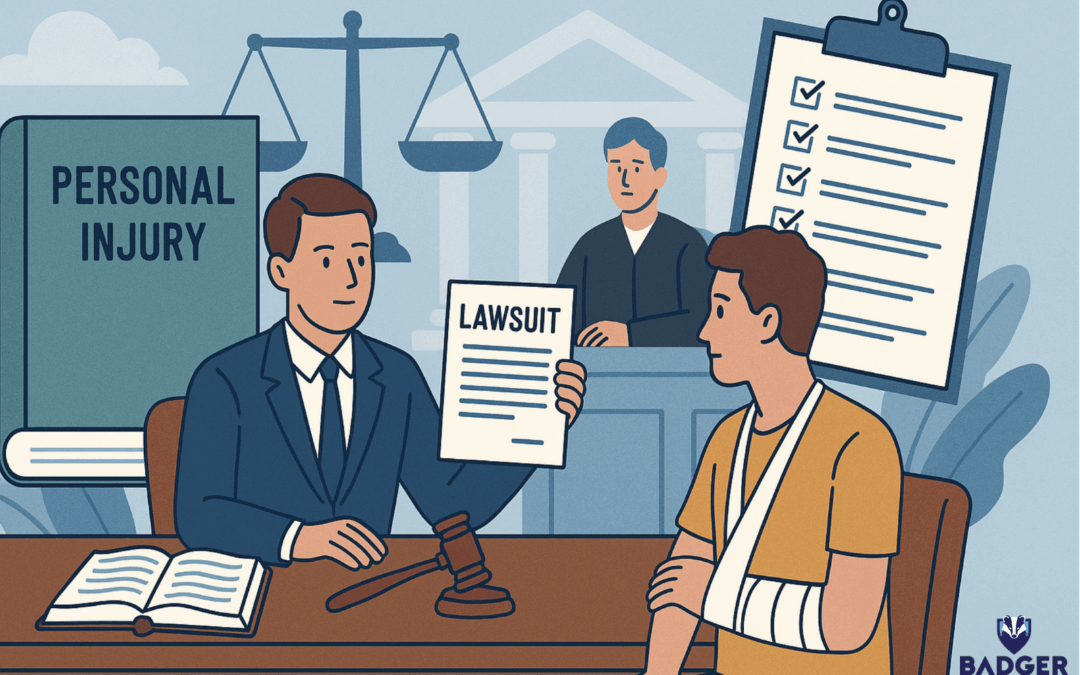In Wisconsin the statute of limitations for a personal injury case is typically 3 years, from the date of injury. If you don’t file your claim in that time, you could lose your right to pursue compensation for medical expenses, lost wages, pain and suffering, and other damages.
However, if you’ve been injured due to someone else’s negligence in Wisconsin you’ll want to file sooner, than later.
What Is the Statute of Limitations for Personal Injury Claims in Wisconsin?
If you’ve been injured in Wisconsin due to someone else’s negligence—whether in a car accident, slip and fall, workplace injury, or medical malpractice case—you have a limited time to file a lawsuit.
Under Wisconsin law (Wis. Stat. § 893.54), the statute of limitations for most personal injury cases is 3 years from the date of injury. This means that if you fail to file your claim within this timeframe, you could permanently lose your right to pursue compensation for medical expenses, lost wages, pain and suffering, and other damages.
However, it’s important to note that this deadline applies to lawsuits, not necessarily to insurance claims. Many insurance companies require prompt reporting of an accident—sometimes within days or weeks. If you wait too long to notify them, they may deny your claim, even if you’re still within the legal filing period.
Additionally, certain types of personal injury cases may have slightly different deadlines or unique filing requirements.
- Medical malpractice claims may have exceptions depending on when the injury was discovered.
- Work-related injuries often involve workers’ compensation rules, which have different reporting and filing deadlines.
- Government-related claims (such as an injury caused by a public employee or unsafe road conditions) have shorter notice requirements (Wis. Stat. § 893.80).
Given these complexities, it’s always best to consult with a Wisconsin personal injury attorney as soon as possible. Badger Injury Law offers free case evaluations to help you determine your best course of action.
Wrongful Death Claims Have Different Deadlines
When an injury results in death, the statute of limitations changes depending on the cause of death.
- General wrongful death claims (non-vehicle-related): The statute of limitations is 3 years from the date of death. This applies to cases such as fatal workplace accidents, nursing home negligence, or medical malpractice resulting in death. Finding a dedicated nursing home abuse lawyer or workplace accident attorney can help families pursue justice in these tragic situations.
- Wrongful death due to a motor vehicle accident: The deadline is only 2 years from the date of death. Because this is one year shorter than other wrongful death claims, families of car accident victims must act quickly to preserve their right to compensation.
These statutes of limitations can be strictly enforced, meaning that if a lawsuit is not filed within these timeframes, the case will likely be dismissed—no matter how strong the claim is.
Who Can File a Wrongful Death Claim in Wisconsin?
Wisconsin law limits who is legally allowed to bring a wrongful death lawsuit. Generally, the following individuals may be eligible to file a claim:
- The deceased person’s spouse or domestic partner
- Surviving children or parents
- A legal guardian or personal representative of the deceased’s estate
Compensation in wrongful death cases may cover medical expenses, funeral and burial costs, loss of financial support, and emotional damages suffered by the surviving family members.
Because wrongful death cases involve both economic and emotional losses, insurance companies often push for quick, low-value settlements. Before accepting any settlement offer, it’s critical to speak with an attorney who can assess the full value of your case and ensure your family receives the compensation you deserve.
Exceptions That Could Change Your Filing Deadline
There are some circumstances where the filing deadline may be extended:
- The Discovery Rule: If an injury is not immediately apparent, the three-year period may begin when the injury is discovered (or should have reasonably been discovered). This is dependent on the type of claim you’re attempting to bring.
- Minors and Individuals with Disabilities: If the injured party is under 18 years old or has a mental disability, the time limit may be extended. Typically, they have 2 years from their 18th birthday or from the end of the disability to file a claim—but no more than 5 years total.
- Claims Against Government Entities: If you’re suing a government agency or municipality, different rules apply. Wisconsin requires you to file a formal notice of claim within 120 days of the injury.
Why It’s Important to File Your Claim Early
Even though you technically have up to 3 years to file a lawsuit, waiting too long can make your case more difficult. Filing early ensures:
✔ Stronger evidence: The sooner you act, the easier it is to collect witness statements, accident reports, and medical records.
✔ Less risk of claim denial: Insurance companies often use delays as a reason to deny or undervalue claims.
✔ Peace of mind: Once your case is filed, you can focus on recovery while your attorney fights for fair compensation.
Talk to a Wisconsin Personal Injury Lawyer Today
Time is critical when filing a personal injury claim in Wisconsin. At Badger Injury Law, we fight aggressively for our clients to maximize their compensation and ensure they don’t miss crucial deadlines.
🔹 No Fees Unless We Win
🔹 Maximum Compensation for Your Injuries
🔹 Trusted & Proven Legal Representation
🔹 100% Free & Confidential Case Evaluation
📞 Call or text us 24/7 at 414-396-7085 or contact us online to schedule your free consultation today.












